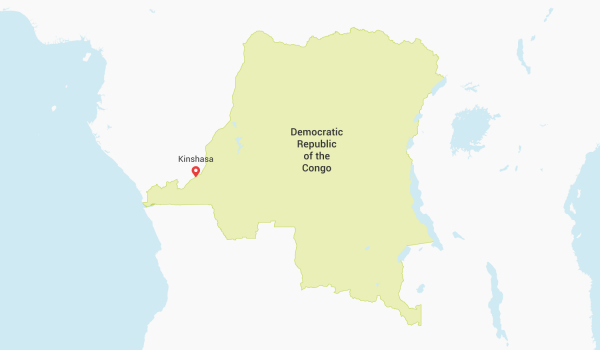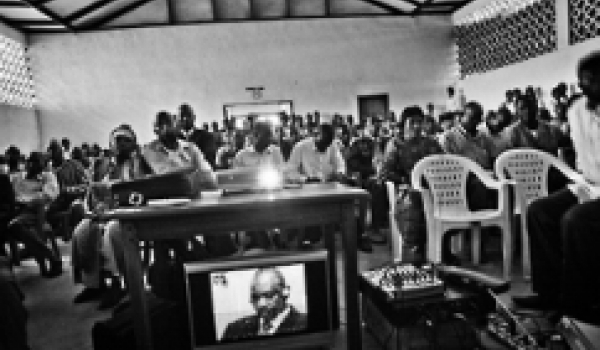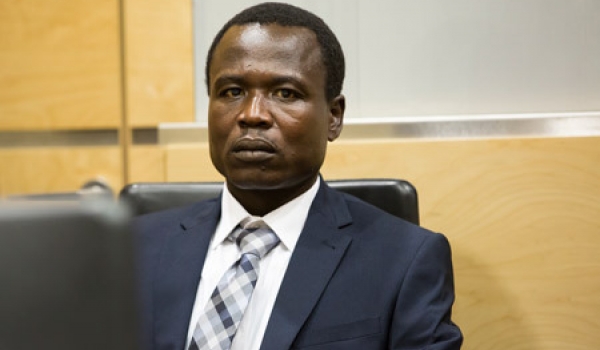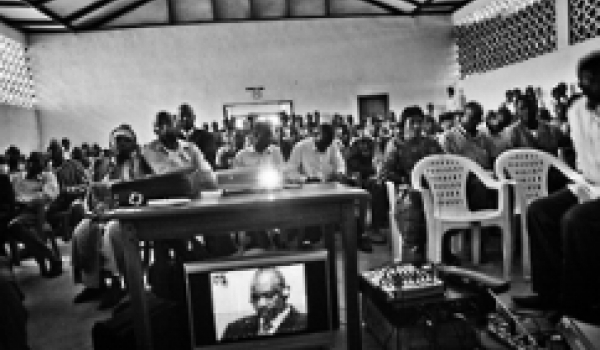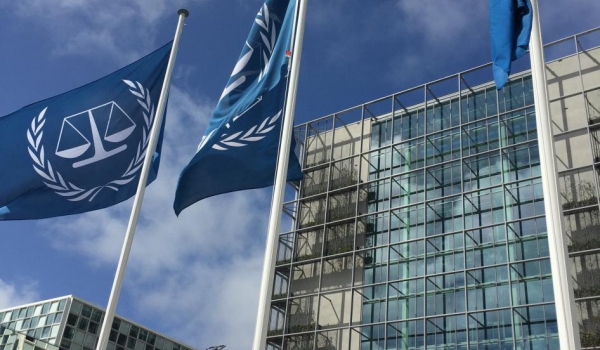At the time of the commission of the crimes, Lubanga was the founding leader of the Union des Patriotes Congolais (UPC) and the commander-in-chief of its military wing, the Forces patriotiques pour la libération du Congo. The militia under Lubanga’s control, composed mainly of the Hema ethnic group, was suspected of committing grave abuses against civilians in the course of the conflict over land and resources in Ituri against militias of the Lendu eithnic group in the Ituri region of eastern DRC from 2002-3. After Lubanga’s arrest and transfer to the ICC in 2006, his deputy Bosco Ntaganda, and fellow ICC suspect, took over as UPC commander.
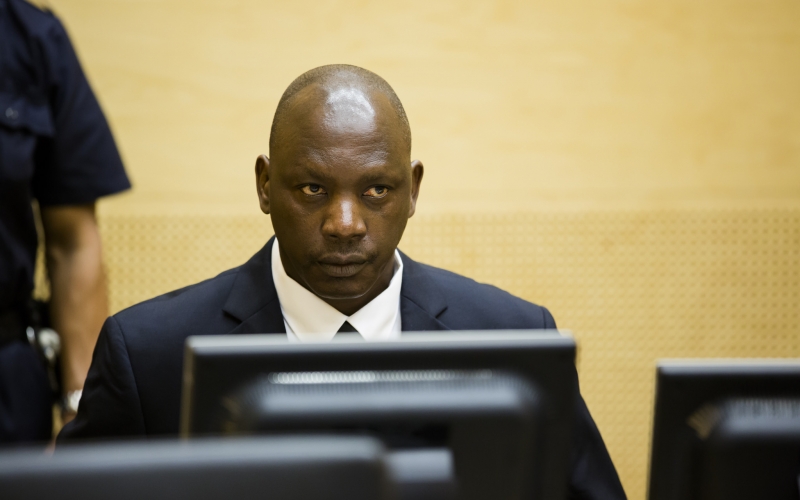
Thomas Lubanga Dyilo at a hearing on 21 August 2015 in the International Criminal Court in the Hague © ICC-CPI
In the first ICC trial, DRC rebel Thomas Lubanga was convicted in March 2012 of the war crimes of enlisting & conscripting children under 15 and using them in hostilities. Sentenced to 14 years imprisonment. Reparations proceedings started on 7 Aug 2012.
Case status:
ReparationsRegions:
AfricaCongolese militia leader Thomas Lubanga was convicted in March 2012 of the war crimes of enlisting and conscripting children under 15 and using them in hostilities in eastern Democratic Republic of Congo. He was sentenced to 14 years imprisonment, to be completed in the DRC. On 19 December 2015, was transferred to a prison facility in the DRC. The reparations proceedings started on August 2012. In 2015, the Trust Fund for Victims (TFV) was instructed to present a draft plan for collective reparations that was approved on October 2016. On December 2017, Trial Chamber II set Mr. Lubanga’s liability for collective reparations at USD $10 million to reflect the harm suffered by victims. As Mr. Lubanga has been found indigent, the Court-ordered reparations will be implemented by the TFV.
ICC first landmark trial
As the first before ICC, the Lubanga trial was a landmark achievement for the Rome Statute system of international justice. The trial did much to highlight the problem of child soldiers and the need to protect children in conflict. The eventual guilty verdict and sentencing sent out a strong message that perpetrators of such crimes could, and would, be held to account.
